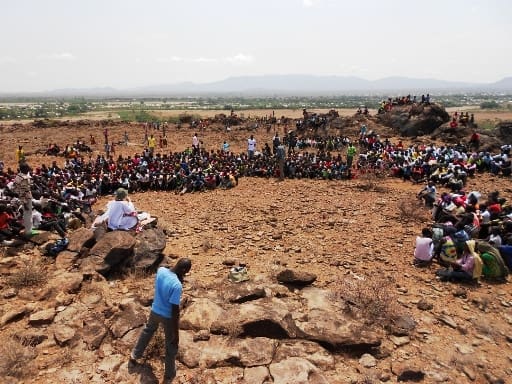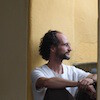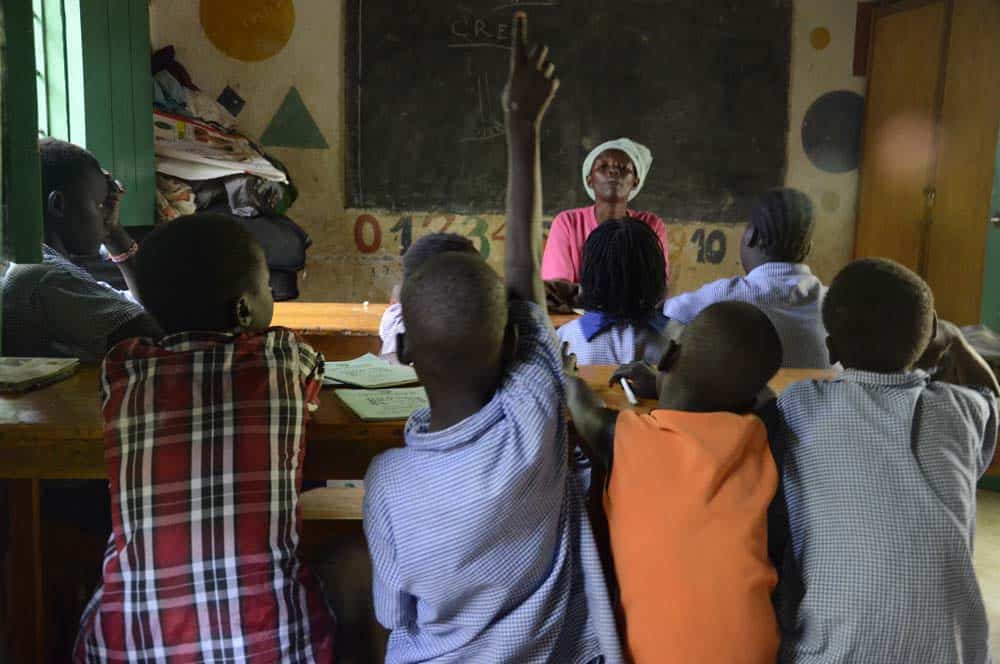
Kakuma Refugee Camp June, 2013. (Christian Fuchs — Jesuit Refugee Service/USA)
Editor’s Note: Pau Vidal, SJ is a Catalan Jesuit who works for the Jesuit Refugee Service. Pau is currently serving as the pastoral coordinator of the Kakuma Refugee Camp in Kenya where refugees from Somalia, South Sudan, Congo, Ethiopia, and other neighboring countries live in exile.
***
Kakuma, 14 July 2013
It is a truism that, from a worldwide perspective, education is a privilege reserved for the few. This privilege is even harder to access when living in a refugee camp.
Still, education is one of the few regular activities offered to the thousands of children living here in exile, far away from their homelands in Kakuma refugee camp. The total population of the camp today stands near 120,000, with more than 50% of the individuals here below 18 years of age. Children and youth are all over the camp, making it a very lively place.
But the challenges of education here in this camp abound. Classes take place in dilapidated infrastructures, sometimes under the tree, often with a ratio of more than 50 students per teacher. Too many of our teachers are poorly trained – when not absent – and we have virtually no textbooks. The syllabi are both decontextualized and westernized, which is also a challenge. Walking the camp, visiting with these people these past months since my own arrival here, I’ve been wondering “is this education really offering something of value to these kids?”
Last week, as I was entertaining such dark thoughts, I remembered the testimony of Peter. It again touched me deeply and offered me a new perspective.
Peter’s Story
I remembered meeting Peter several months ago, on my first week in Kakuma. It was a Sunday, and, having just been ordained a year ago, I was taken to one of the Catholic chapels in our refugee camp to celebrate mass. Peter, being one of the leaders of that Christian community, was the first one to welcome me. He had a big smile on his face. I remember being impressed – and a bit overwhelmed – by his height. Like most South Sudanese Peter is extremely tall (anyone remembers Manute Bol, the 7′ 7″ NBA player? South Sudanese). His presence, though, was not a menacing one. He greeted me warmly, holding my much smaller hand between his two bigger ones, and saying with a thick English accent and a reassuring and soft voice: “we are very happy that you have come.”
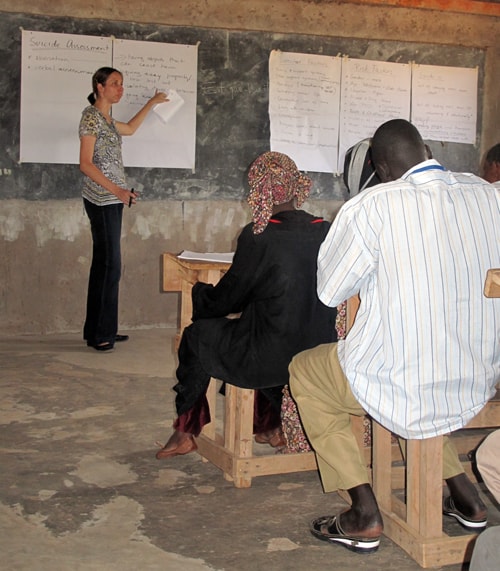
Kakuma Refugee Camp (Sophie Vodvarka — Jesuit Refugee Service/USA)
Peter is currently attending one of the two secondary schools in the camp, doing his 4th year of high school. Out of the entire camp, only 1,373 students have the chance to pursue their education in secondary level. Each one of these thirteen hundred students are not only hoping for a better future through education, they are working for it. Peter is one of these lucky, hardworking, men and women.
With this privilege comes sacrifice. Every day Peter sits in a packed class, under rusted iron sheets of metal mercilessly heated by the intense sun, and tries to digest every word his teacher says, decipher every stroke jotted on the blackboard. Sometimes the heat is so intense that he or his classmates will ask for permission to get up not to use the restroom, but refresh themselves with a bit of water so that they will not faint in the middle of the lesson.
Even if he is still doing his last year of high school, Peter is not a teenager any more. He is 29 years old, and has been living in this camp for the last ten years. His home is in a medium size compound, a collection of five shacks made of mud walls. In total twenty nine people live together with him, and, since many of the twenty nine who live there are unaccompanied minors, Peter acts as the elder, the father really, of the compound. In fact, after the sudden death of his brother last year, Peter took in his brother’s wife and her three children as well. It is a crowded home.
Unfortunately Peter has not been sleeping at home for the last few weeks.
Sleeping out
This is because, each day after class has ended and Peter has completed the hour walk back to his compound, he returns to the school building to study. In his short time at home he arranges a few things, sees that the children get their only meal of the day (invariably composed of maize and beans), spends what time he can, and then spends the next hour walking back to the school building he just left. It is there that he spends the night.
He’s not alone these nights. Like Peter, many students (maybe around two hundred) come in the evening, line up their mats next to one another and slowly drift off to sleep on the classroom floor. Some even bring their mosquito nets, and when day comes, they roll them up together with their mats and place them in a fragile equilibrium between the planks of the roof wooden trusses to allow for classes to start.
What is it exactly that calls many students to join this spontaneous, self-ruled and unplanned boarding school? Peter’s answer left me astounded.
Last year, an NGO (Non Governmental Organization) donated to the school a set of solar panels and wired some of the classrooms. When the rest of the camp is engulfed by darkness, some few students, those who have been able to raise enough money to buy a bulb, gather around that steady, lonely light. To study. In the darkness. And they do it because each of the 1,373 men and women who’ve been given a seat in these secondary education classes know the same thing: serious and continuous study is the only way for them to succeed.
They do this almost every night, especially now that exams are approaching. They are probably, if you are reading this late in the day in America (or early in the evening in Europe or very early in the pre-dawn in east Asia), doing this right now. Just now Peter and his fellow students are studying, or sleeping next to one another on a classroom floor under a mosquito net, or walking an hour each way to and from their homes, dust kicking up with each step.
Tonight Peter and his fellow students might sleep far from home, with an empty stomach. But the dream they are chasing seems to be more fulfilling than the scarce food ration that the United Nations distributes every fortnight to each refugee.
Difficult choices
If Peter had a source of income he could maybe buy candles, or kerosene, or even a portable solar lantern and study from home. But he does not. For him and many others that is not a possibility. Life here in the camp is not easy, and the choices that people living in exile and poverty must make are often… difficult.
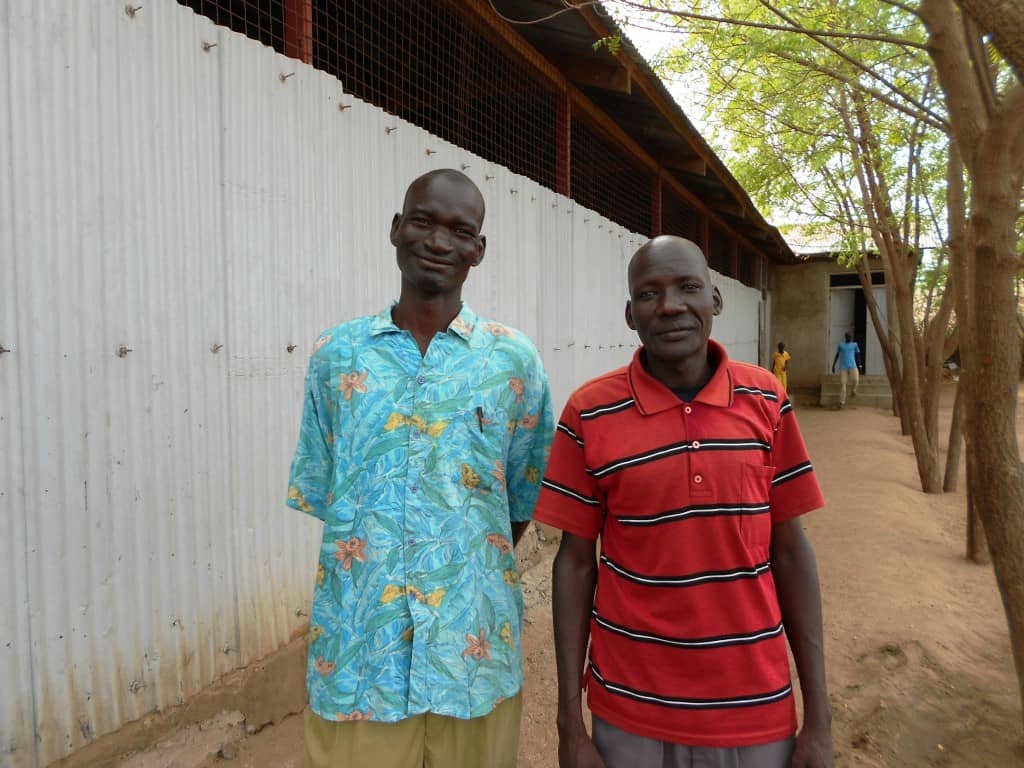
Peter (on left) and his friend Stephen in Kakuma (Pau Vidal)
Since Peter told me of his nights of study in the school I’ve been wondering: what would be the best option left for him? If any? Should he stay back in his compound making sure that his twenty-eight dependents who are looking up on him are well cared for? Or should he do as he is currently doing, that is, try his best in school so that in the future he can offer something better to his people? I wish I had a clear answer to these questions, but frankly I don’t.
Peter’s testimony reminds me of the terrible structural injustice that forces so many Peters’ not to have access to proper education and proper resources. His story is also a challenge to all of us who take for granted that the light/computer/TV will obviously come on when our fingers press the switch. Peter’s perseverance following the light is a painful but necessary reminder of how exceptional it is to have a regular supply of electricity at home.
Next time you turn on the light, remember Peter.
***
Author’s Note: If you would like to help bring more light into Peter’s life you can donate to JRS Kakuma by clicking here to go to the JRS USA donations page. Please label your purpose “Greatest Need” and write below a short note asking that your donation go to Kakuma, and it will do so. All of your donations will go to helping us to find durable solutions for Peter and his companions.
The cover photo is of Fr. Pau Vidal saying mass at the Kakuma Refugee camp. You can find that photo, and others, on Pau’s website here.

